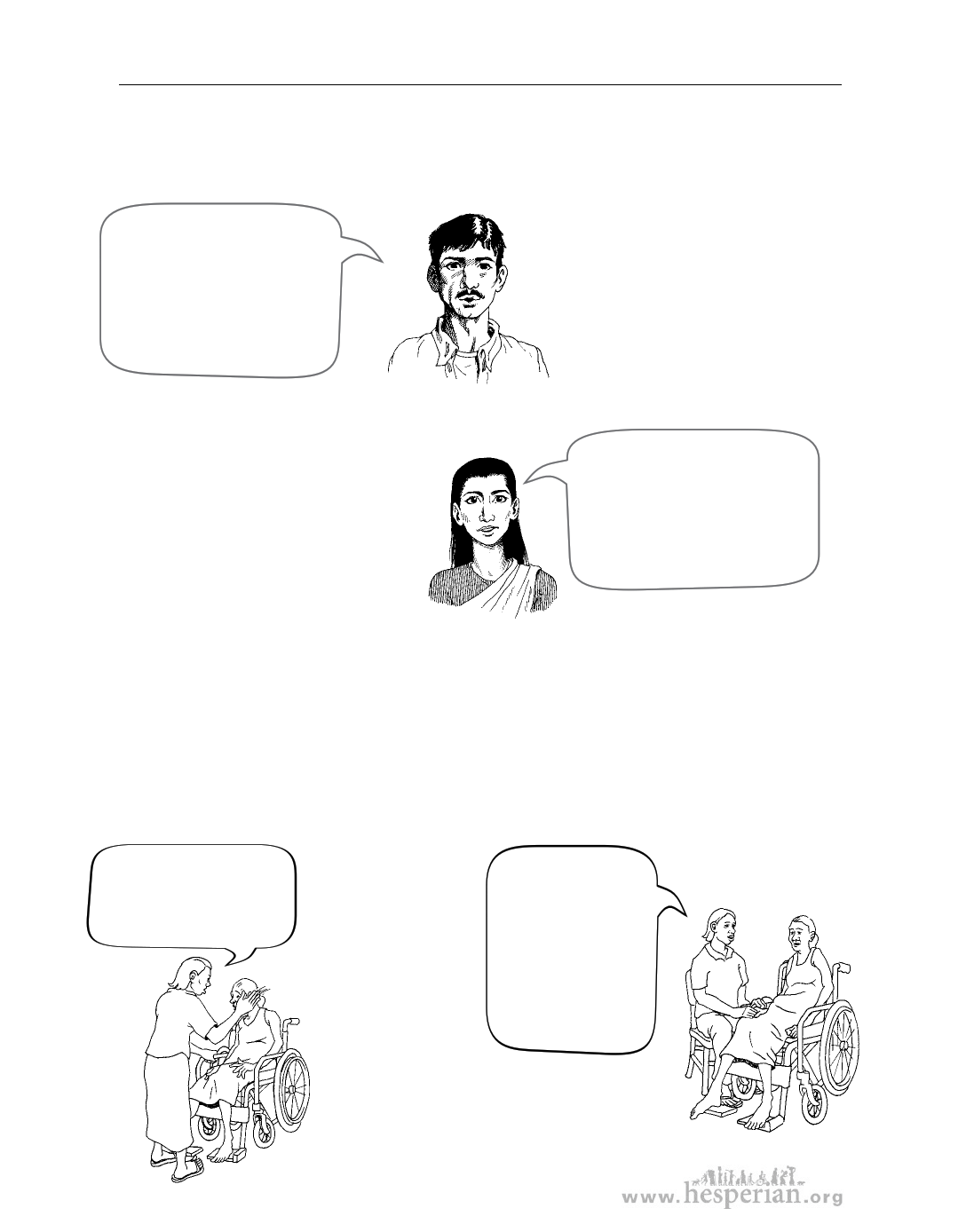
318 chapter 15: Support for caregivers
Understanding your feelings can move you to actions that make both your life
and the life of the woman with disabilities better.
I love my wife and I want
to support her. But since
her accident, my life has
become so difficult. I have
to do everything for her. It
makes me feel angry with
her sometimes.
Feeling frustrated, helpless, or
lonely may help you reach out to
other people in your community
who live with women who have
disabilities, or who are themselves
disabled. They may be able to
help you.
Feeling angry may give
you energy to help organize a
group of caregivers and others
to persuade the government
to make it easier for women
with disabilities to get good
health care, transport, and
access to public buildings.
People in my village do not
treat women with disabilities
well. I wish I could change
that and make life better for
Sita.
It makes me feel so sad and
helpless.
Healthy ways to talk about feelings
When people who spend a lot of time together do not talk about how each other
feels, they can become frustrated and angry with each other. Even if talking cannot
find a way to change the underlying reasons for your feelings, it can help both of
you to change how you act on them.
People show their feelings in different ways. There are healthy ways of expressing
feelings and unhealthy ways. For example:
You’re an ungrateful
woman! I don’t know
why I bother to try to
help you.
This is a dangerous and
unhealthy way to talk
about feelings.
When you tell me all
the things I’m doing
wrong, and never
talk about anything
I’m doing right, I
get angry because
you don’t seem to
appreciate my help.
This is a safe and
healthy way to talk
about feelings.
A Health Handbook for Women with Disabilities 2007